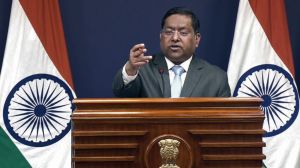LUXE GENES
Individuals are getting their genome maps charted out by private firms8212;but it is a costly proposition at 350,000

On a cold day in January, Dan Stoicescu, a millionaire living in Switzerland, became the second person in the world to buy the full sequence of his own genetic code. He is also among a relatively small group of individuals who could afford the 350,000 price tag. Stoicescu is the first customer of Knome, a Cambridge-based company that has promised to parse his genetic blueprint by spring. A Chinese executive has signed on for the same service with Knome8217;s partner, the Beijing Genomics Institute, the company said.
Scientists have so far unravelled only a handful of complete human genomes, all financed by governments, foundations and corporations in the name of medical research. But as the cost of genome sequencing goes from stratospheric to merely very expensive, it is piquing the interest of a new clientele.
8220;I8217;d rather spend my money on my genome than a Bentley or an airplane,8221; said Stoicescu, 56, a biotechnology entrepreneur who retired two years ago after selling his company. He says he will check discoveries about genetic disease risk against his genome sequence daily, 8220;like a stock portfolio.8221;
But while money may buy a full readout of the six billion chemical units in an individual8217;s genome, biologists say the superrich will have to wait like everyone else to learn how variations in their sequence influence appearance, behaviour, disease susceptibility and other traits.
Biologists have mixed feelings about the emergence of the genome as a luxury item. Some worry that 8220;genomic elitism8221; could sour the public on genetic research that has long promised better, individualised health care for all. But others see the boutique genome as something like a 20 million tourist voyage to space8212;a necessary rite of passage for technology that may soon be within the grasp of the rest of us.
8220;We certainly don8217;t want a world where there8217;s a great imbalance of access to comprehensive genetic tests,8221; said Richard A. Gibbs, director of the human genome sequencing center at Baylor College of Medicine. 8220;But to the extent that this can be seen as an idiosyncratic exercise of curious individuals who can afford it, it could be quite a positive phenomenon.8221;
It was the stream of offers from wealthy individuals to pay the Harvard laboratory of George M. Church for their personal genome sequences that led Dr. Church to co-found Knome last year most people pronounce it 8220;nome,8221; though he prefers 8220;know-me8221;. Scientists say they need tens of thousands of genome sequences to be made publicly available to begin to make sense of human variation. Knome, however, expects many of its customers to insist on keeping their dearly bought genomes private.
Stoicescu, who has a PhD in medicinal chemistry, was born in Romania and lived in the US in the early 1990s before founding Sindan, an oncology products company that he ran for 15 years. Now living with his wife and 12-year-old son in Geneva, he describes himself as a 8220;transhumanist8221; who believes that life can be extended through nanotechnology and artificial intelligence, as well as diet and lifestyle adaptations. His genome sequence, he reasons, might give him a better indication of just what those should be. Last fall, Stoicescu paid 1,000 to get a glimpse of his genetic code from deCODE Genetics. That service, and a similar one offered by 23andMe, looks at close to a million nucleotides on the human genome where DNA is known to differ among people.
Knome is not the only firm in the genome business. Illumina, a firm in San Diego, plans to sell whole genome sequencing to the 8220;rich and famous market8221; this year, said its chief executive, Jay Flatley. If competition drives prices down, the personal genome may quickly lose its exclusivity. The nonprofit X Prize Foundation is offering 10 million to the first group to sequence 100 human genomes in 10 days, for 10,000 or less per genome. The US government is supporting technology development with an eye to a 1,000 genome in the next decade.
Stoicescu, who wants to create an open database of genomic information seeded with his own sequence, hopes others will soon join him. A few days after he wired his 175,000 deposit to the company, a Knome associate flew in from Cambridge to meet him at a local clinic. 8220;What the heck am I doing?8221; Mr. Stoicescu recalls wondering. 8220;And how many children in Africa might have been fed?8221; Then he offered up his arm and gave her three test tubes of his blood.
8211; AMY HARMON New York Times
- 01
- 02
- 03
- 04
- 05































